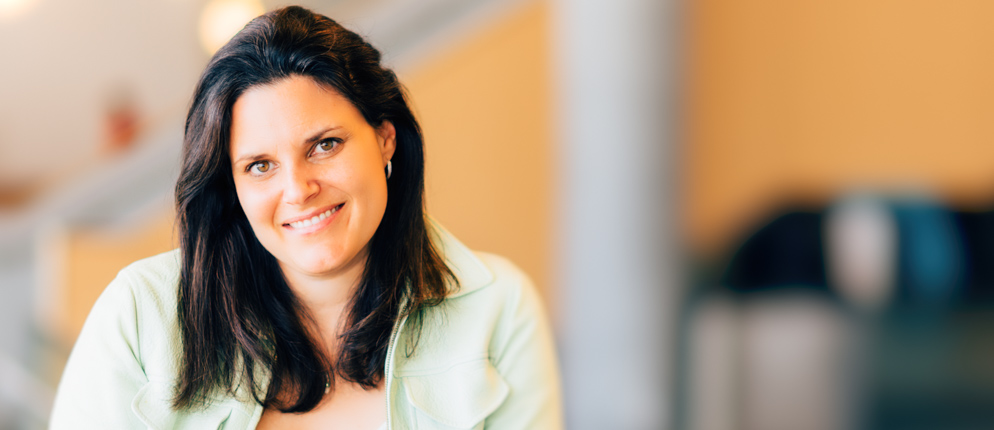

Change is stressful. Good change, bad change, whatever the change – it’s during these transitional times in our lives that we often find ourselves at an increased risk of anxiety and depression. That’s the bad news. The good news – it’s during these same times that we often learn the most and grow the most, according to Program Head of Early Childhood Studies, Dr. Nikki Martyn. Also on the upside – we can learn to navigate these transitional times and do better with stress.
This, the message she, along with UofGH students Miranda Palmer (3rd year, Early Childhood Studies) and Juan Lasso (4th year, Psychology) recently passed along to those about to face a major change - Grade 12 students at nearby secondary schools.
Dr. Martyn and Miranda Palmer sat down with us to talk fear, failure and risk, between visits to St. Edmund Campion and Cardinal Leger secondary schools.
In Conversation with: Program Head Dr. Nikki Martyn and Miranda Palmer (3rd year, Early Childhood Studies)

UofGH: What are you hearing as the most considerable stresses among students about to enter university?
NM: University can bring about huge change. All of a sudden, you might lose your entire social network. That’s terrifying. Moving away, not being close to friends and family – even just the autonomy can be quite stressful. You can now choose to attend class or not, you have some independence.
MP: I was extremely nervous about meeting new friends and passing my courses. There’s also tremendous pressure among high school students to figure out their futures.
NM: And then students have this idea that they can’t fail. That they need to control everything in life – even though nobody can – and this is where anxiety and depression and other internalizing disorders may factor in. So this is where I come in to say, You’re going to fail - it’s inevitable [laughs]. We all have, and we’re all better for it. Much of the time, our fantasies are scarier than reality.
UofGH: Miranda, you took a year off before coming to UofGH. How was that year for you?
MP: A year off was certainly not something I’d planned. For me, it was about finding out what I didn’t like, before finding out what I liked. I also learned how important attitude is in being successful. Be prepared to fail, and turn the failure into a positive. It’s a stressful thing. But it’s really not worth the fear.
NM: Failure is always very stressful. But thinking about change, thinking about failure, and thinking about the fact that most failure is fixable, is important. In simply accepting this, you may offset an anxious response.
It’s something we all struggle with, throughout our lives. Being able to ask for help when you need it, falling in love, having great relationships – these things all take tremendous risk. If you don’t take risks, you may not fail, but you also may never do anything amazing. It’s only when you risk failure that you may produce something spectacular.
Life isn’t going to be what you expect it to be. University isn’t going to be what you expect it to be. Nothing is. But for health and wellness, it’s important to know that we can make choices along the way. We can choose how to see something, either positively or negatively. We can choose how to react to a situation. We can choose how to fix a mistake.

